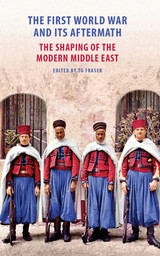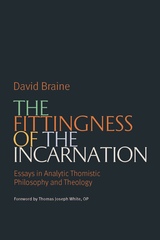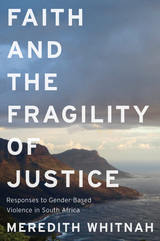
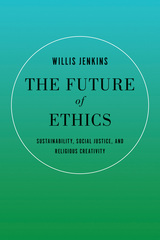
The Future of Ethics interprets the big questions of sustainability and social justice through the practical problems arising from humanity’s increasing power over basic systems of life. What does climate change mean for our obligations to future generations? How can the sciences work with pluralist cultures in ways that will help societies learn from ecological change?
Traditional religious ethics examines texts and traditions and highlights principles and virtuous behaviors that can apply to particular issues. Willis Jenkins develops lines of practical inquiry through "prophetic pragmatism," an approach to ethics that begins with concrete problems and adapts to changing circumstances. This brand of pragmatism takes its cues from liberationist theology, with its emphasis on how individuals and communities actually cope with overwhelming problems.
Can religious communities make a difference when dealing with these issues? By integrating environmental sciences and theological ethics into problem-based engagements with philosophy, economics, and other disciplines, Jenkins illustrates the wide understanding and moral creativity needed to live well in the new conditions of human power. He shows the significance of religious thought to the development of interdisciplinary responses to sustainability issues and how this calls for a new style of religious ethics.
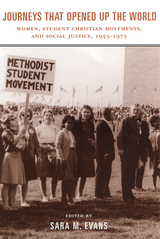
For thousands of young women in the 1950s and 1960s, involvement with the student Christian movement (SCM) changed their worldviews. Religious organizations fostered women’s leadership at a time when secular groups like Students for a Democratic Society, and the Left in general, relegated most female participants to stereotypical roles.
The SCM introduced young women to activism in other parts of the country and around the world. As leaders, thinkers, and organizers, they encountered the social realities of poverty and racial prejudice and worked to combat them. The SCM took women to Selma and Montgomery, to Africa and Latin America, and to a lifelong commitment to work for social justice.

The just peace movement offers a critical shift in focus and imagination. Recognizing that all life is sacred and seeking peace through violence is unsustainable, the just peace approach turns our attention to rehumanization, participatory processes, nonviolent resistance, restorative justice, reconciliation, racial justice, and creative strategies of active nonviolence to build sustainable peace, transform conflict, and end cycles of violence. A Just Peace Ethic Primer illuminates a moral framework behind this praxis and proves its versatility in global contexts.
With essays by a diverse group of scholars, A Just Peace Ethic Primer outlines the ethical, theological, and activist underpinnings of a just peace ethic.These essays also demonstrate and revise the norms of a just peace ethic through conflict cases involving US immigration, racial and environmental justice, and the death penalty, as well as gang violence in El Salvador, civil war in South Sudan, ISIS in Iraq, gender-based violence in the Democratic Republic of Congo, women-led activism in the Philippines, and ethnic violence in Kenya.
A Just Peace Ethic Primer exemplifies the ecumenical, interfaith, and multicultural aspects of a nonviolent approach to preventing and transforming violent conflict. Scholars, advocates, and activists working in politics, history, international law, philosophy, theology, and conflict resolution will find this resource vital for providing a fruitful framework and implementing a creative vision of sustainable peace.
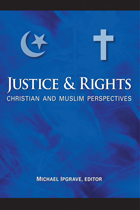
Justice and Rights is a record of the fifth "Building Bridges" seminar held in Washington, DC in 2006 (an annual symposium on Muslim-Christian relations cosponsored by Georgetown University and the Church of England). This volume examines justice and rights from Christian and Muslim perspectives—a topic of immense relevance for both faiths in the modern world, but also with deep roots in the core texts of both traditions.
Leading scholars examine three topics: scriptural foundations, featuring analyses of Christian and Muslim sacred texts; evolving traditions, exploring historical issues in both faiths with an emphasis on religious and political authority; and the modern world, analyzing recent and contemporary contributions from Christianity and Islam in the area of freedom and human rights.

Comprehensive in its approach yet written in plain language, The Moral Bond of Community offers a biblically-based concept of Christian justice that can be applied to moral questions in everyday life.
Brady examines four forms of Christian moral discourse — narrative, prophetic, ethical, and policy — and shows how each contributes to a fuller understanding of Christian morality.
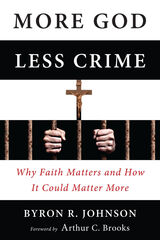
In More God, Less Crime renowned criminologist Byron R. Johnson proves that religion can be a powerful antidote to crime. The book describes how faith communities, congregations, and faith-based organizations are essential in forming partnerships necessary to provide the human and spiritual capital to effectively address crime, offender rehabilitation, and the substantial aftercare problems facing former prisoners. There is scattered research literature on religion and crime but until now, there has never been one publication that systematically and rigorously analyzes what we know from this largely overlooked body of research in a lay-friendly format. The data shows that when compared to current strategies, faith-based approaches to crime prevention bring added value in targeting those factors known to cause crime: poverty, lack of education, and unemployment. In an age of limited fiscal resources, Americans can’t afford a criminal justice system that turns its nose up at volunteer efforts that could not only work better than the abysmal status quo, but also save billions of dollars at the same time. This book provides readers with practical insights and recommendations for a faith-based response that could do just that.
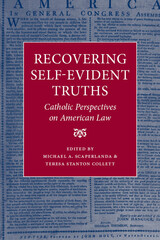
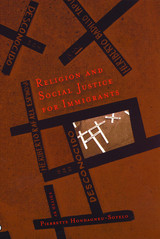
Religion has jumped into the sphere of global and domestic politics in ways that few would have imagined a century ago. Some expected that religion would die as modernity flourished. Instead, it now stares at us almost daily from the front pages of newspapers and television broadcasts. Although it is usually stories about the Christian Right or conservative Islam that grab headlines, there are many religious activists of other political persuasions that are working quietly for social justice. This book examines how religious immigrants and religious activists are working for equitable treatment for immigrants in the United States.
The essays in this book analyze the different ways in which organized religion provides immigrants with an arena for mobilization, civic participation, and solidarity. Contributors explore topics including how non-Western religious groups such as the Vietnamese Caodai are striving for community recognition and addressing problems such as racism, economic issues, and the politics of diaspora; how interfaith groups organize religious people into immigrant civil rights activists at the U.S.–Mexican border; and how Catholic groups advocate governmental legislation and policies on behalf of refugees.

READERS
Browse our collection.
PUBLISHERS
See BiblioVault's publisher services.
STUDENT SERVICES
Files for college accessibility offices.
UChicago Accessibility Resources
home | accessibility | search | about | contact us
BiblioVault ® 2001 - 2025
The University of Chicago Press


